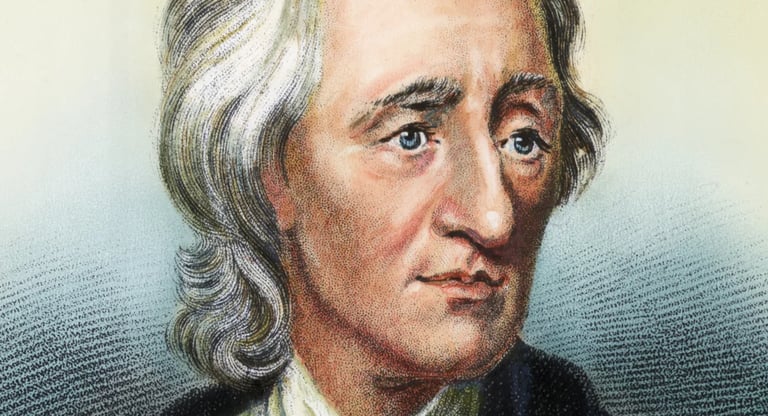UPSC PSIR Optional: Locke’s Social Contract. (10M – 2022)
Locke’s contract is not a surrender—it’s a trust. 🔐 Born in an age of revolutions, John Locke reimagined the State as a servant, not a master. His political thought laid the foundation for liberal democracy, inspiring constitutions, civil rights, and the right to rebel. This post walks you through Locke’s ideas of the state of nature, social contract, limited government, and why thinkers like Carol Pateman and Leo Strauss think there’s more hidden beneath the surface.
PSIR
8/3/20252 min read


🌍 Historical Context: Glorious Revolution & Locke’s Optimism
John Locke lived through a period of great transformation in Britain—the Glorious Revolution of 1688 marked the fall of absolute monarchy and the rise of parliamentary democracy.
🔹 Unlike Hobbes, Locke had an optimistic view of human nature.
🔹 He saw humans as reasonable and cooperative, capable of living in peaceful coexistence even without a state.
🌿 State of Nature: A Pre-Political Yet Social Condition
Locke’s state of nature is:
Peaceful – marked by goodwill, mutual aid, and self-preservation.
Governed by natural law – rooted in reason.
Source of natural rights: Life, Liberty, and Property.
But Locke also saw inconveniences:
❌ No settled law
❌ No impartial judge
❌ No common enforcer
🤝 The Two-Stage Social Contract
Locke’s contract is not a single surrender, but a two-stage process:
1️⃣ Formation of Political Society
People voluntarily join together to protect their natural rights.
2️⃣ Establishment of Government
A fiduciary power (not absolute), created by society to enforce laws and protect public good.
🔹 The government is not a party to the original contract.
🔹 Instead, it operates on trust—and that trust can be revoked.
🗣️ As Laslett notes, Locke’s goal was to show that “all actions of governors are limited to the good of the governed.”
⚖️ Government as Trust: Not Sovereign, but Subordinate
Locke introduces the idea of "tacit consent" to bind individuals to laws.
The legislative power is supreme, but limited by the purpose for which it was created.
People retain the right to revolt if the government:
Acts arbitrarily
Fails to protect life/liberty/property
Fails to execute law or prevent external threats
⚠️ Rebellion does not mean anarchy—thanks to the two-stage nature, society survives even if the government collapses.
🧩 Locke’s Three Powers of Government
Legislative – Supreme authority, law-making
Executive (inc. Judicial) – Law enforcement
Federative – External affairs & diplomacy
This formed the basis of modern separation of powers.
❗ Criticism of Locke’s Theory
💬 Leo Strauss & Richard Cox
Locke merely repackaged Hobbes, with softer language.
💬 John Plamenatz
Critiques "tacit consent"—how can silence mean agreement?
♀️ Carol Pateman (Feminist Critique)
Locke’s social contract hides a "sexual contract", preserving patriarchy and male dominance in the name of civil society.
🌐 Locke’s Lasting Legacy
✅ Inspired the US Constitution and liberal democracies globally
✅ Key influence on Indian Constitution:
Article 14 – Rule of Law
Basic Structure – Checks & balances
Right to dissent & protest – Civic participation
Locke’s idea that power is derived from the people, and that government is for the people, continues to form the ethical spine of constitutionalism.
🔚 Conclusion: From Trust to Transformation
John Locke turned the political conversation from authority to accountability, from monarchy to consent. His ideas may not be perfect—critics rightly question his exclusions—but they still inspire resistance against tyranny and uphold the spirit of democratic governance.
💡 "Wherever law ends, tyranny begins." – Locke